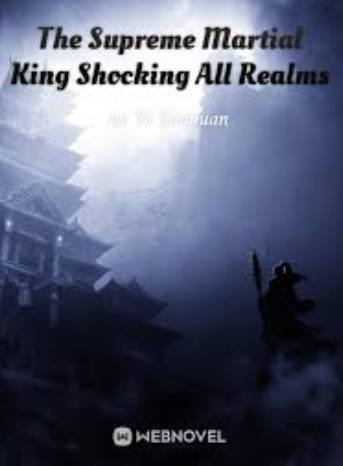Chapter 366 Broken Bridge
During this period of time, due to school affairs and personal matters, there have been few updates, and now it has finally come to an end, and it will return to normal tomorrow.
********
Soon, under the cover of fighter planes, the Soviet army went around the river again and advanced along the ice... There are no obstacles in the river and it is flat, so it is safer for troops to advance here.
Kubile couldn't help being stunned after hearing the news that the Russian army was coming ashore, and then a few drops of cold sweat quickly emerged from his forehead.
German generals may be good at fighting "blitzkriegs", but they are usually not good at defending "blitzkriegs".
In fact, "blitzkrieg" can be said to be hard to defend against. Because it always looks for the enemy's weakness to break through.
If you want to prevent "blitzkrieg", there seem to be only two options:
One is to have a fast mobile unit that is faster than the enemy so that it can get ahead of the enemy to block it, entangle it, and surround it.
Of course the German army has such mobile units, especially the enemy is equipped with "Matilda" tanks.
But it's a pity that it is Tver, and it is obviously too late to transfer from other places.
Another method is to keep everything airtight. The German army obviously did not have such preparations, and of course they would not have so many troops.
At this moment, Kubil realized that things were not as simple as he thought.
"General!" The adjutant suggested: "We should bring up the Sixth Armored Division!"
The Sixth Armored Division has been deployed by Kubil on the second line ten miles away from Tver... On the one hand, because of the emergence of new equipment that can deal with tanks in the Russian army, Kubil did not dare to put the armored troops into battle. On the one hand, it is because it is difficult for street fighting tanks to play a role, especially the mobility of German tanks cannot be used at all.
"No!" Kubiler shook his head: "Even if the Sixth Armored Division is called in, it won't help. They will either be exposed to the enemy's planes, or they will be destroyed by their new equipment!"
At this time, the Luftwaffe had no advantage, which made the German army very passive. Although the bombing skills of the Soviet pilots were not high, they had a numerical advantage... This also frightened the German armored forces.
"But we don't have any other troops to stop them, General!" The adjutant said anxiously: "Should we just let them rampage within our defense line until they run out of bullets?"
After thinking for a while, Kubil said: "Tver Bridge, Shalot, their goal is the Tver Bridge, send people to guard it immediately!"
"Yes!" The adjutant responded and immediately conveyed the order.
Kubile was right. The goal of the 1st Guards Tank Brigade was indeed the Tver Bridge.
The reason is very simple. Although the Tver Bridge has been blown up, the newly built railway by the German army is only 200 meters away from the Tver Bridge, and there is a road 500 meters away on the other side.
That is to say, if the Tver Bridge is occupied, the railways and roads can be controlled with artillery from a commanding height, that is to say, the German army's transportation line to the Fourth Tank Army in the northeast can be blocked.
So, although Tver was short of troops at this time, the German army still transferred two infantry battalions to the Tver Bridge.
Just like before, the German army deployed troops on the broken bridge body and both sides of the Tver Bridge. If the enemy attacked the bridge, they would be attacked from three sides like facing the Volga Bridge.
However, things were once again beyond the Germans' expectations.
While the German army was guarding the bridge and waiting for the arrival of the Soviet army, the Soviet tanks left the river again and went ashore, and then "rumbled" along the road to attack the front of the bridge.
In this way, all the firepower deployed in the bridge opening on the side of the bridge will be ineffective, and the German army can only rely on simple buildings and sandbag fortifications to resist Soviet tanks.
This is the benefit of tank units, they can choose their attack direction at will.
Of course, this direction of attack is beneficial to the Soviet army and unfavorable to the German army.
This is the "offensive advantage theory" of the German army...Feng Shui turns, and the main attacking Soviet army will certainly not give up this advantage.
Shuerka led the troops and moved forward behind the tank.
The German army panicked and fell into chaos.
This is normal, because this is not only a problem of wrong estimation by the German army, but also a problem of improper allocation of firepower and troops... First of all, one of the two battalions of the German army was on the opposite bank and could not come for reinforcements, and most of the anti-tank artillery was deployed in the bridge hole. It became scrap metal.
That is to say, the German army can only use anti-tank grenades, explosive kits, etc. to stop the Soviet attack.
The German army did exactly this. Although they knew that there was no possibility of victory in the battle due to the disparity between the enemy and us, they still did not retreat or escape.
This may be because they knew the importance of the Tver Bridge, or it was an order from their superiors... Anyway, they raised their weapons in the snow and organized a commando to charge the Soviet tanks with explosives.
But this is clearly futile.
Several "Matilda" tanks stopped, adjusted their muzzles slightly, and then "boomed" a few times, blowing up the German sandbag fortifications, and the Germans hiding behind the sandbags, They were thrown violently into the air and fell, even under bridges.
Several German soldiers leaped carefully between the bomb craters holding anti-tank grenades.
Compared with explosive packs and cluster grenades, anti-tank grenades still pose a certain threat to tanks. After all, they still have a throwing distance of more than 20 meters.
So, if the Soviet army didn't find them hiding in the crater and the tanks moved forward again, the German army would probably succeed.
But all the Soviet soldiers at this time are veterans, especially those subordinates who followed Shulka from Brest to this place. They have grown into the elite of the army during the six months of fighting.
Therefore, there was no need for Shulka's order at all. They consciously divided into several teams and crossed the tank to meet them... At this time, of course, they could no longer hide behind the tank armor. ending.
That is, the tank can't do anything about it.
But infantry can solve this problem easily. They only need to lock on to a bomb crater, then approach with a cat waist, and when they are about 40 meters away from the target, they will ignite a grenade and throw it over...
Anti-tank grenades can only be thrown 20 meters, while grenades can be thrown 50 meters, so there is no solution at all, and the German army can only be beaten passively.
Some fast-moving German troops will jump out the moment the grenade is thrown into the crater, hoping to escape the explosion range of the grenade.
But there were several "Porposa" submachine guns waiting for him outside. He only heard a burst of "da da da" gunshots, and the German anti-tank teams were wiped out one by one in the snow.
Then, the tanks crossed the German bridgehead and drove onto the bridge.
Although the bridge was blown off from the middle, once the tanks drove onto the bridge deck, it was like setting up a fort on a high place, and the surrounding German troops had to be beaten passively.
(end of this chapter)






